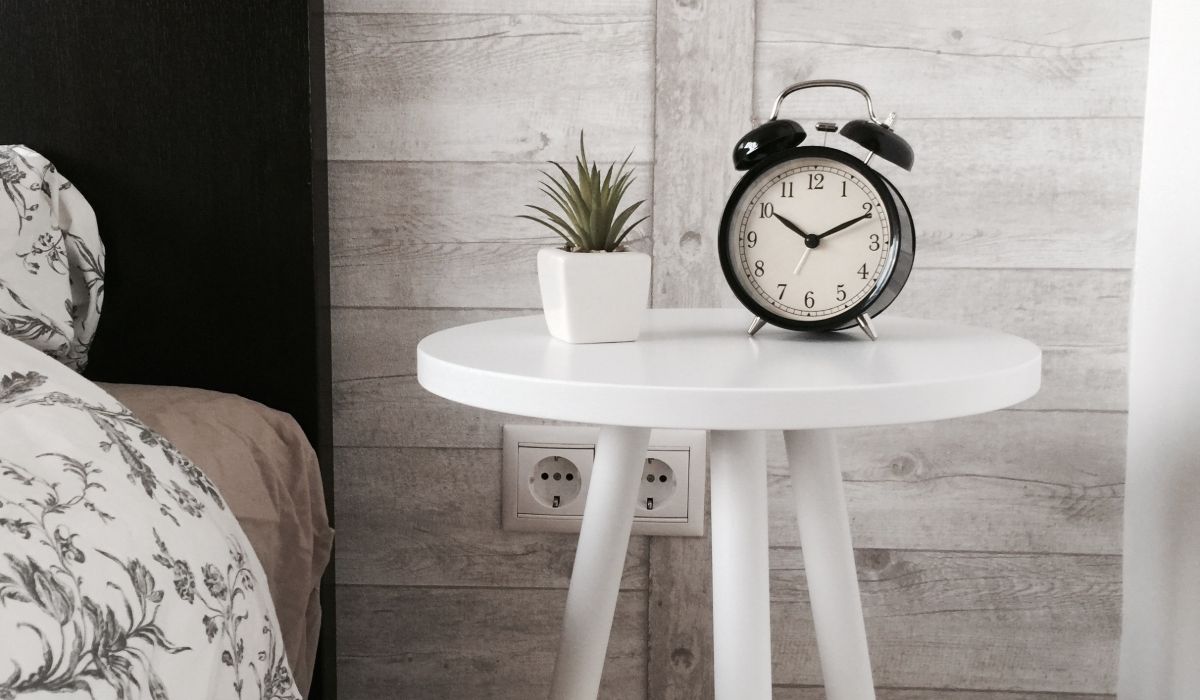When life seems hectic and out of control, it helps to be reminded that there are some simple tips and changes in behavior that are surprisingly effective at reducing worry, stress, anxiety, and depression. Keep reading to find out some practices to implement in your daily life for health and wellness.
- Sleep. A good night’s sleep is important for our mental health. Sleep helps restore us. Without enough, we begin to see changes in how we think and feel. Specifically, disrupting sleep has a negative effect on mood, anxiety levels, and general mental capability. Be sure to create healthy sleeping habits by going to bed and waking up at around the same time every day. To wind down, try taking a warm shower before bedtime to relax into sleep.

- Structure. Add structure to your day by planning activities in the morning and afternoon hours. Have realistic and obtainable goals with a beginning, middle, and end. Then, strive to meet at least one goal that brings you a sense of joy, meaning, or fulfillment.
- Gratitude. Start your day by saying “thank you” to yourself and end your day with three things that occurred that day that you are grateful for. This exercise helps you see the positives in your life and can work wonders for helping to shift perspectives.
- Compassion. Be your own best friend. Talk kindly to yourself with compassion and understanding while remembering your strengths. Through compassion and honesty, you can look at yourself, your own behavior, and have the courage to make the changes you need to create the life you want. Free yourself from negative criticisms to focus your energy on what brings you joy and meaning.

- Thoughts. What we are thinking about influences our feelings which in turn affect our behaviors. Pay attention to your thoughts. Are they positive and helpful or negative and harmful? If negative, be open to challenging them. By changing your narrative, you open the possibility of shifting your perceptions and engaging in the world differently.
- Calm. You cannot be anxious and calm at the same time. Learn to relax your body with breathing and relaxation exercises. Try mediation. Start by putting aside 5 minutes of your day to focus on your breathing, sit quietly outside in a garden or take a leisurely stroll.
- Imagery. Often when we are anxious or depressed we think in terms of a catastrophic movie featuring the worst-case scenario. Be the writer, actor, and director of the movie of your life. Create a different, more positive story. Know what you want your life to look like and every day, with intention and integrity, take steps towards making it happen.

- Exercise. Start your day with movement. Even 10 to 15 minutes will have an impact on your day. Consider going for a walk, run, stretch, or doing yoga. It will help you shift your mood and get your day off to a better start. Moderate exercise also has the added benefit of helping you get a great night’s sleep.
- Play. Engage in an activity that is fun for you. When we are anxious, stressed, or depressed this is often something we forget to do. Play is the first thing to go out the door. Remember what you love to do and do it. Listen to music, dance, read a book, watch a funny movie, or go hiking. Enjoying yourself is an important part of a balanced life.

- Rest. Listen to your body. If you can, take a day or two off when you need it. Sometimes we need to get away from our hectic life and rest. Even sleeping in can have a positive impact.
- Substances. Significantly reduce alcohol, drug, and caffeine use. All of these things impact your thoughts, mood, anxiety, and sleep. Consider limiting or cutting out some of these substances or switch to decaf for your morning brew.
- Friendship. Spend time with loving, supportive friends. Surround yourself with people that lift your spirits and understand you. The positive energy from others can often be contagious.

- Nature. Get outside and be present in your environment. Nature grounds us and helps restore our balance. Like a refresh button for your mind.
- News. Take a break from and stop watching the news or watch it less often. Yes, it’s important to know what is going on in the world around us, but it can still be negative and overwhelming. Find the right balance for you.
- Parenting. If you have children, make positive moments with them. Spend more time playing with them and take the time to listen to their thoughts. Get to know what makes them excited about life and it might just excite you too.

- Surprises. Planning a surprise for someone you care about will give you as much or more satisfaction than being the person on the receiving end. This can be a very fun way to distract you from your concerns and make someone else happy at the same time.
- Creativity. Infuse your life with creative activities. When you are worried it makes it hard to think. Trying something creative makes you take a step back, pausing to exercise your brain in a new way. Get out in the garden or pull out your paintbrushes. These kinds of activities help you leave those worrisome thoughts alone and come back to them with a refreshed perspective.
Try one or two of these ideas and see how they work for you. Share this post with friends or family who you think could use a little self-implemented TLC. These tips are a great way to get started on reducing stress, worry, anxiety, and depression symptoms. However, if you are experiencing chronic and intense symptoms and believe therapy is right for you, you are welcome to call (760) 930-0886 to set up an appointment with me, Rakefet Benderly PH.D, a psychologist in Carlsbad. Together, we can heal in connection.
Dr. Benderly is a psychologist practicing in San Diego, CA. She provides psychotherapy services to residents of San Diego including Carlsbad, Encinitas, Solana Beach, Del Mar, Rancho Santa Fe, Fairbanks, Oceanside, Vista, La Jolla, San Marcos, Escondido, and La jolla.
Dr. Benderly specializes in treating: Depression & Anxiety, Grief & Loss, Relationships, Premenstrual Dysphoric Disorder, Assertiveness & Social Skills, Stress Management, and more.
Therapy offered in Hebrew and English.

